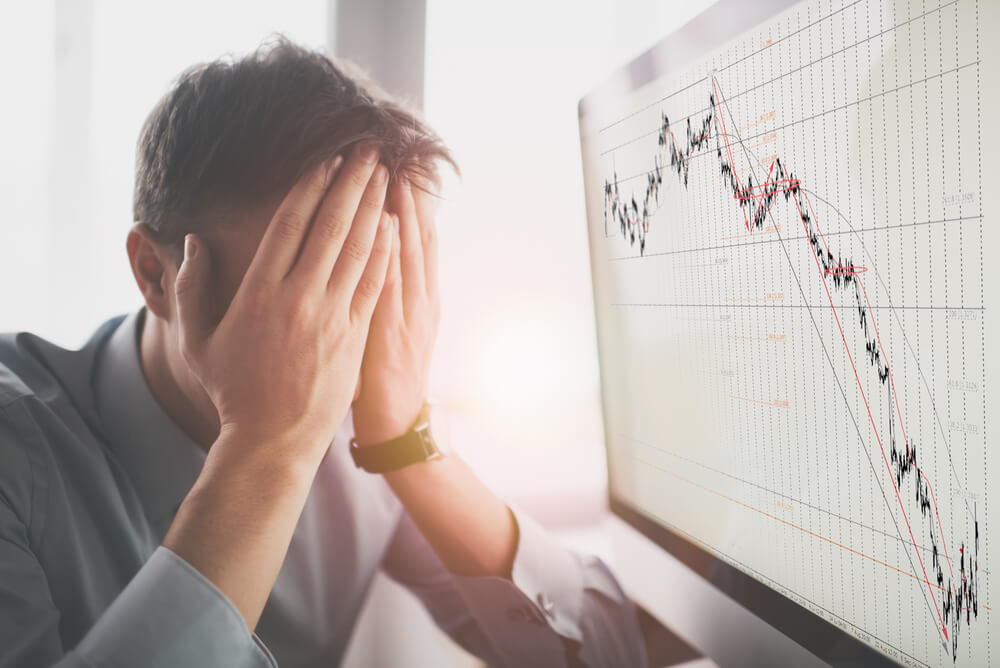The stock market rally reversed course hard Thursday as a smooth recovery out of the coronavirus lockdown seems less likely, so is this only the first gut check for investors?
“The dumbest of the dumb money will get their hats handed to them.”
After rallying more than 37% off its March 23 low, the S&P 500 cratered 5.9% after losing 0.5% Wednesday. The Dow was even worse, falling 1,861 points, or 6.9%, while the Nasdaq fell 5.3% off Wednesday’s record-high close.
The Federal Reserve held steady on its monetary policy while also repeating its pledge to support financial markets in its most recent meeting Wednesday.
“The ongoing public health crisis will weigh heavily on economic activity, employment and inflation in the near term and poses considerable risks to the economic outlook over the medium term,” the Fed’s statement said.
It also noted its benchmark interest rate will likely stay near zero into 2022.
Banyan Hill Publishing’s John Ross warned the Fed’s message may have been “a dose of reality” after the stock market run-up following Friday’s better-than-expected jobs report that still showed a 13.3% unemployment rate.
“The bulls have to go on defense now,” said Ross, Editor of Apex Profit Alert. “I think that happened with the May U.S. jobs report beat on Friday. It established recovery expectations. And the Fed’s state of the economy throws cold water on that posture.”
The Fed projects unemployment to fall to 9.3% by the end of 2020, which is still almost triple where it was in January, when it was at its lowest level in a half-century.
Bleakley Advisory Group Chief Investment Officer Peter Boockvar warned Wednesday that the stock market could face a sell-off of at least 10% this summer as the economy slowly continues to reopen.
“That’s when the gut check is going to take place,” Boockvar said during a Wednesday appearance on CNBC’s “Trading Nation.”
Ross points to the action of a swath of individual investors sending the stock market on its most recent rally as they bet on a “V-shaped” recovery. Meanwhile, the Fed continues to do whatever it can to support financial markets.
“Buying during the uptrend was a lot of dumb money, running on the ‘policy-makers-will-save-us mantra,'” Ross said. “Now that the policymakers have done their thing, actual economic recovery has to justify valuations.”
Ross recently warned of “dumb money” flooding into recovery stocks as “smart money” stayed on the sidelines in a piece for Banyan Hill Publishing that you can read here.
And as far as this being a gut check for investors? Ross thinks “the bulls will have a tough time defending stock valuations in the coming months.”
“And the dumbest of the dumb money will get their hats handed to them,” he added.
The “Buffett Indicator,” named after value investor extraordinaire Warren Buffett, tracks the stock market in relation to the economy. The latest reading shows the stock market is valued at 150% the size of the economy, which is at an all-time high once factoring in numbers for the previous quarter.
So how should investors handle this latest gut check? Ross is still finding opportunities for profit, but he warns to be cautious — especially in the short-term.
“Investors should be extra cautious in the next three months (at least),” Ross wrote via email. “Keep your core stocks, but take money off the table in riskier ones.”
It may be tempting to try to hop on the latest trend upward, but Ross thinks it’s better to hedge the risk.
“You may miss a couple more percentage points on the upside, but you’ll likely miss a lot more percentage points of downside,” he said.
Ross, an options trading expert, thinks there are some ways to find gains by targeting some companies that are struggling.
“Traders should consider short-selling opportunities on laggards,” Ross said.
Investing is most definitely a wild ride right now, and if you want to continue risky trades on the economic recovery, be prepared for another gut check like Thursday’s. Hedging your investments a bit now could save yourself from a huge headache later.




